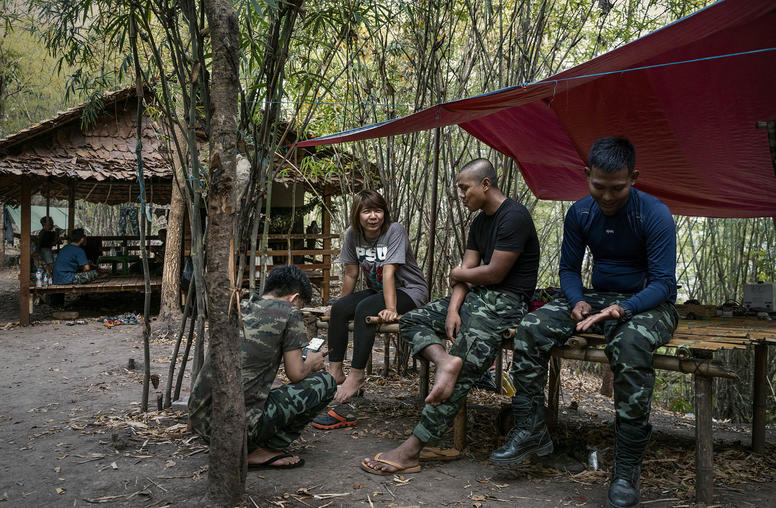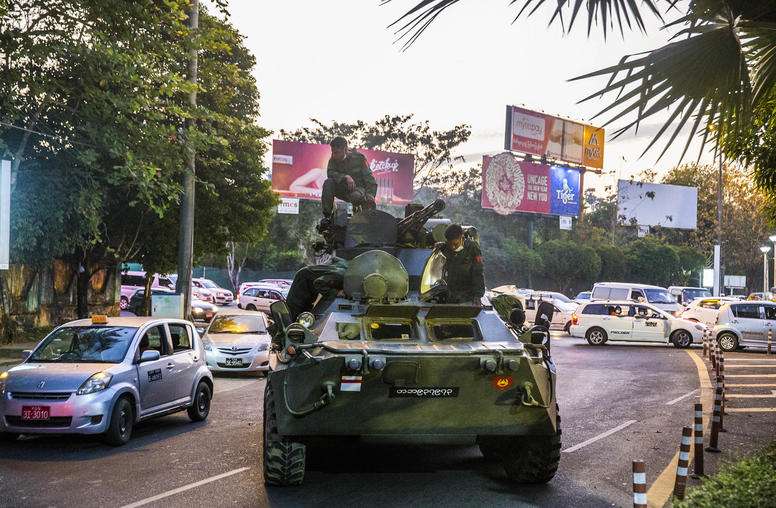Burma/Myanmar in Transition: A Discussion with Aung San Suu Kyi
Read the event coverageThe United States Institute of Peace and the Asia Society were honored to host an engaging discussion with Daw Aung San Suu Kyi on the democratic transition in Burma/Myanmar, the challenges that lie ahead, and the potential of a promising future.
After decades of stagnation under military rule, Burma/Myanmar finds itself in a particularly fluid and fragile transition. Daw Aung San Suu Kyi has been at the fore of her country's transition, helping reshape its political development path.
Aung San Suu Kyi returned to Burma/Myanmar from Britain in 1988 to care for her mother. Shortly after, she became leader of the largest uprising in Burma/Myanmar's history. In 1990, Suu Kyi's party, National League for Democracy (NLD), won Burma/Myanmar's first free elections in 30 years by a landslide. The country's military junta refused to cede power, and Suu Kyi was forced into house arrest for nearly 15 years. During this time, she remained the Chairperson and General Secretary of the NLD and continued to push for justice and sound rule of law. She was awarded the Sakharov Prize for Freedom of Thought in 1990 and the Nobel Peace Prize in 1991. In 2011, a new, quasi-civilian government took power and boldly began to implement democratic reforms, which continue today. This April, Aung San Suu Kyi was elected into Burma/Myanmar's parliament and continues her work to transform her country into a just and democratic state.
In her first visit to the United States in more than 20 years and her first public event, the United States Institute of Peace and the Asia Society were honored to host Daw Aung San Suu Kyi for an engaging discussion on the democratic transition in Burma/Myanmar, the challenges that lie ahead, and the potential for a promising future.
Speakers:
- Aung San Suu Kyi, featured speaker
Member of Parliament, Burma
Chairperson and General Secretary, National League for Democracy - Hillary Rodham Clinton, introductory remarks
Secretary of State
United States Department of State - Jim Marshall, opening remarks
President
United States Institute of Peace - Henrietta Fore, opening remarks
Co-chair
Asia Society - Tom Freston, presenter of Asia Society Global Vision Award
Trustee
Asia Society - Suzanne DiMaggio, co-moderator
Vice President, Global Policy Programs
Asia Society - Colette Rausch, co-moderator
Director, Rule of Law Center
United States Institute of Peace
Explore Further
- Read the summary, "Burma/Myanmar Democracy Activist Daw Aung San Suu Kyi Calls for U.S. Support, Easing of Sanctions at USIP"
- Read about USIP's efforts in Burma/Myanmar
- Read the Olive Branch blog post, "Democracy is a Process - and a Journey" by Colette Rausch
- Read the News Feature, "Burma Dialogue Involving USIP, Partners to Continue" by Vijay Simhan
- Read the On the Issues feature, "Communal Violence in Burma" by Priscilla Clapp
Related Academy Courses
- Rule of Law Practitioners Course
- Building Bridges through Intergroup Dialogue
- Human Rights and International Humanitarian Law



